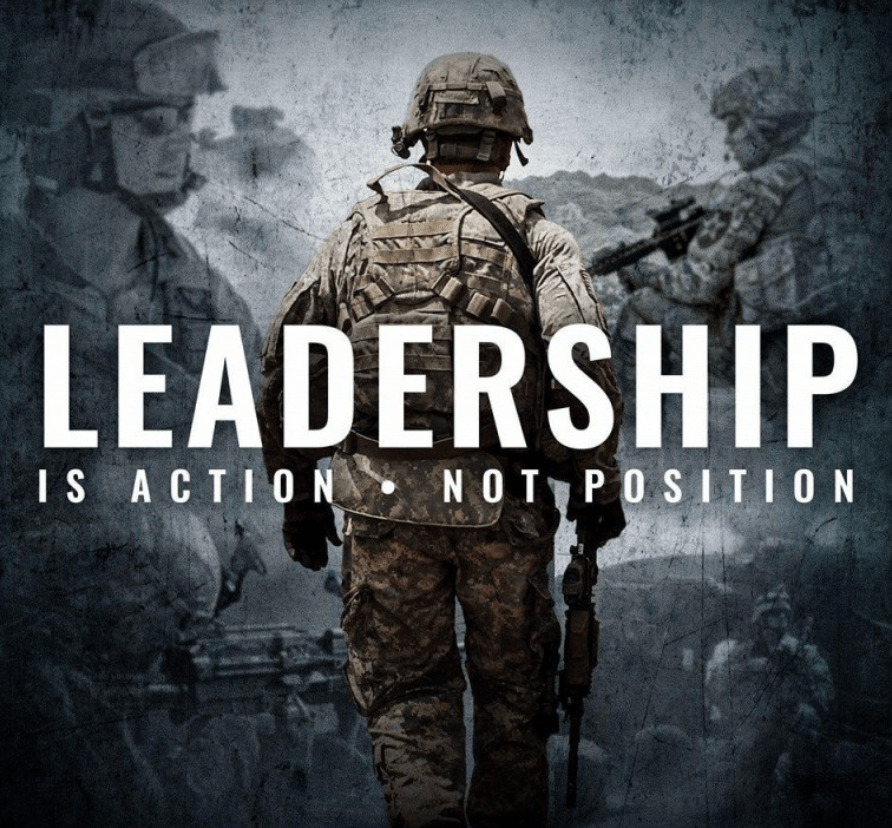
The Vital & Heroic Role of Leadership in Military Operations
Frequently Asked Questions
1. What is the importance of leadership in military operations?
2. What are the characteristics of effective military leaders?
3. How does military leadership impact team cohesion?
4. Can military leadership skills be applied in civilian life?
5. What challenges do military leaders face during crises?
Leadership plays a pivotal role in military operations, influencing the success or failure of missions across various terrains and circumstances. The strength of military leadership directly correlates with troop morale, strategic planning, and operational effectiveness. Whether you're a veteran looking to understand the dynamics of leadership or someone just intrigued by military strategies, the essence of strong leadership resonates throughout history and translates into numerous sectors today, including everyday life and even fashion, like when creating a perfect Dad t-shirt that reflects pride and honor.
Understanding Military Leadership
Military leadership is unique, distinctly shaped by the demands of warfare and cohesive strategic operations. It requires not only an understanding of tactical maneuvers but also a keen sense of human elements, including team dynamics and individual capabilities. Leaders must be able to inspire, motivate, and guide their troops through complex and often dangerous scenarios.
The Characteristics of Effective Military Leaders
Effective military leaders often share common traits that enable them to excel in high-pressure situations:
- Decisiveness: The ability to make quick, informed decisions can be the difference between success and failure in military operations.
- Integrity: Trust is foundational in the military; leaders must be honest and maintain high ethical standards to command respect.
- Communication Skills: Clear and concise communication fosters understanding and cooperation among troops.
- Empathy: Understanding the emotional and physical struggles of their team helps leaders make better decisions.
- Strategic Thinking: The capacity to think critically and forecast different scenarios is essential for operational planning.
The Impact of Leadership on Military Operations
The impact of leadership in the military extends far beyond simple command. It shapes the culture and identity of military units, influencing how soldiers perceive their roles and responsibilities. Let's explore some ways leadership elevates military operations:
Moral and Ethical Framework
Military leaders set the tone for ethical behavior and organizational culture. When leaders demonstrate strong moral principles, it inspires troops to uphold those values, leading to disciplined, respectful, and courageous behavior during operations. This ethical framework is crucial in combat situations where the stakes are incredibly high.
Training and Development
A leader's commitment to training and developing their team can significantly affect operational readiness. Leaders who prioritize education, advanced training, and professional development opportunities prepare their troops for various challenges they may face in the field. This proactive approach not only enhances individual capabilities but strengthens the unit as a whole.
Team Cohesion
One of the essential roles of military leadership is fostering cohesion among team members. Strong leaders cultivate a sense of belonging and camaraderie, ensuring that soldiers trust and rely on each other in critical moments. This bond can enhance operational performance and improve mission success rates.
Historical Examples of Leadership in Military Operations
Throughout history, several military leaders have exemplified the vital role of leadership in operations. By examining their approaches, we can uncover valuable lessons that still resonate today:
General Dwight D. Eisenhower
As Supreme Commander of the Allied Expeditionary Forces during World War II, Eisenhower's strategic foresight and ability to unite various nations were crucial to the success of the D-Day invasion. His leadership style emphasized collaboration, appreciation of diverse viewpoints, and strategic delegation, proving invaluable in complex military endeavors.
Admiral Horatio Nelson
Navigating naval warfare during the Napoleonic Wars, Admiral Nelson's leadership was characterized by audacious tactics and innovative strategies. His ability to inspire his crew enabled him to achieve dazzling victories, such as at the Battle of Trafalgar, cementing his legacy as one of history’s finest naval commanders.
The Transition of Military Leadership Skills to Civilian Life
Many skills fostered through military leadership have valuable applications in civilian life. Leadership skills such as team building, effective communication, and strategic thinking transcend military operations and enhance productivity in various sectors, including business, education, and community service. It's not uncommon to see leaders who have transitioned from military careers leveraging these unique capabilities to foster dramatic change within organizations.
The Essence of Leadership Training Programs
Recognizing the benefits of military training, numerous organizations and institutions have implemented leadership training programs patterned after military guidelines. These programs aim to instill the same principles of decisiveness, integrity, and strategic thinking in participants from all walks of life. Wearing a Dad t-shirt that reflects these values can serve as a proud testament to one’s commitment to leadership, growth, and personal development.
Navigating Challenges: Leadership in Times of Crisis
Military operations often face unprecedented challenges and uncertainties, requiring leaders to adapt rapidly and maintain composure under pressure. The best leaders develop crisis management techniques, enabling them to guide their teams effectively even in the most dire situations.
Crisis Communication
During crises, effective communication can prove invaluable. Military leaders must deliver critical information clearly, ensuring all team members remain aligned and focused on the mission. This clarity can be the glue that holds a mission together when chaos threatens to disrupt order.
Building Resilience
Leadership in military operations also involves preparing troops for the emotional toll that accompanies long deployments and high-stress situations. Resilient leaders foster a culture of mental well-being, providing support systems that help soldiers cope with stress and adversity, ultimately enhancing unit effectiveness.
The Future of Military Leadership
As the nature of warfare evolves, so too does the landscape of military leadership. Leaders must stay attuned to technological advancements and new warfare strategies. They must embrace diversity and inclusivity to foster innovation and adaptability within their teams.
Embracing Technology
With advances in technology such as artificial intelligence, unmanned aerial vehicles, and data analytics, military leadership must evolve accordingly. Leaders must learn to leverage these technologies, integrating them into operations to enhance strategic decision-making and operational effectiveness.
Diversity in Leadership
Today's military leaders must recognize the strength that comes from diverse backgrounds and experiences. An inclusive environment allows for diverse perspectives, creating better problem-solving and innovation within military teams. This shift can lead to more effective leadership styles that resonate with every service member, ultimately enhancing mission success.
Leading from the Front: An Ongoing Journey
The role of leadership in military operations is an ongoing journey filled with challenges, growth, and profound achievements. The valuable insights gathered through military leadership not only elevate operational success but influence broader society, including contemporary aspects of culture, such as fashion trends. As you don your Dad t-shirt, remember the incredible lessons of leadership are not just for the military but are applicable in all areas of life. Embrace the qualities that define strong leadership, strive for continuous growth, and inspire those around you—because effective leadership is truly a journey worth taking.




